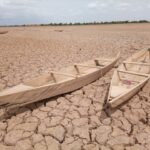Keep calm and carry on!
Jules Verne
“From the Earth to the Moon”
This is a support page for the following book, use the information here to help your understanding.
What you need to do: Download the book, read it, and utilise these lesson notes for better understanding. I’ve summarised each chapter and listed keywords separately.


Jules Verne was a French author who lived a long time ago. He wrote exciting adventure stories that take readers on journeys to strange and wonderful places.
Verne’s books often involve exploring the depths of the ocean, travelling to the moon, or discovering new lands.
He used his imagination to create amazing inventions and fantastic adventures that capture the imaginations of readers of all ages.
Some of his most famous books include “Twenty Thousand Leagues Under the Sea” and “Around the World in Eighty Days.”
Jules Verne’s stories have inspired many people to dream big and explore the unknown.
Here are the summaries of each chapter from The book “From the Earth to the Moon”.
Chapter One: The Gun Club of Baltimore In this chapter, the Gun Club of Baltimore is introduced, formed during the Civil War for discussing ideas related to explosives and weaponry. President Barbicane calls for a meeting to share an important idea – to send a projectile to the Moon.
Chapter Two: President Barbicane has some letters President Barbicane receives a letter from J.M. Belfast confirming the feasibility of their plan. Barbicane organizes plans for the projectile, including making a cannon and acquiring funds. Captain Nicholl, a rival, challenges Barbicane with a monetary bet.
Chapter Three: A visitor from across the sea Barbicane receives a letter from Captain Nicholl proposing a wager. Michel Ardan, a Frenchman, offers to join the mission. The group finalizes plans for the projectile and begins construction.
Chapter Four: Ardan has a plan Ardan joins Barbicane and Nicholl in the projectile, and the group experiences a launch, heading towards the Moon. During the journey, they encounter challenges, including potential danger from meteors and unexpected changes in direction.
Chapter Five: Around the Moon The group reaches the Moon’s vicinity but finds themselves in an unexpected orbit around it, unable to land. They face challenges such as oxygen fluctuations and uncertain navigation.
Chapter Six: The return to Earth Back on Earth, observers witness the projectile’s return, mistaking it for a meteor. The projectile lands in the ocean, and sailors rush to its rescue, uncertain of the fate of its occupants.
Keyword vocabulary from the six chapters:
Chapter One: The Gun Club of Baltimore
| Keyword | Definition | Example |
|---|---|---|
| Gun Club | An organization or group focused on firearms and related activities. | “The Gun Club of Baltimore was founded to discuss and create new firearms and explosives.” |
| Projectile | An object thrown or launched into the air with great force, usually referring to a weapon or ammunition. | “The Gun Club planned to send a large projectile to the Moon as a form of communication.” |
| Explosives | Substances capable of producing a sudden and violent release of energy, often used for demolition or propulsion. | “The members of the Gun Club were experts in creating and handling various types of explosives.” |
| Communication | The imparting or exchanging of information or news between people or groups. | “The Gun Club aimed to establish communication with the Moon using their projectile.” |
| President | The leader or head of an organization or group. | “Impey Barbicane served as the president of the Gun Club and proposed the idea of sending a projectile to the Moon.” |
Chapter Two: President Barbicane has some letters
| Keyword | Definition | Example |
|---|---|---|
| Astronomer | A scientist who studies celestial bodies such as stars, planets, and galaxies. | “J.M. Belfast, the astronomer, provided crucial information to President Barbicane about the Moon’s position and the timing for launching the projectile.” |
| Cannon | A large artillery gun designed to fire heavy projectiles over long distances. | “The Gun Club planned to construct a massive cannon to launch the projectile towards the Moon.” |
| Telescope | An optical instrument used to magnify distant objects and celestial bodies for observation. | “J.T. Maston monitored the progress of the projectile using a powerful telescope from the Rocky Mountains.” |
| Telecommunication | The transmission of signals, messages, or information over a distance by electronic means. | “President Barbicane’s plan to send a projectile to the Moon was seen as a groundbreaking form of telecommunication.” |
| Calculation | The process of determining something mathematically or logically. | “Barbicane and his team made extensive calculations to ensure the success of their mission to the Moon.” |
Chapter Three: A visitor from across the sea
| Keyword | Definition | Example |
|---|---|---|
| Rich | Having a great deal of money or assets. | “Captain Nicholl, a wealthy individual, proposed a wager with President Barbicane regarding the success of the mission.” |
| Duel | A formal combat between two individuals, typically fought with weapons, to settle a dispute. | “Barbicane and Nicholl agreed to settle their differences through a duel, but it was eventually averted by the intervention of others.” |
| Hill | A naturally raised area of land, often with sloping sides. | “Barbicane and his team searched for a suitable hill in Florida to construct their massive cannon for launching the projectile.” |
| Telegram | A message sent electronically over a telegraph system, typically in the form of coded signals. | “Barbicane received telegrams from various supporters and contributors, expressing their enthusiasm for the lunar mission.” |
| Contribution | The act of giving or donating something, typically money or effort, towards a cause or project. | “Barbicane’s call for contributions garnered significant support from individuals and organizations across the country.” |
Chapter Four: Ardan has a plan
| Keyword | Definition | Example |
|---|---|---|
| Meteor | A small body of matter from outer space that enters the Earth’s atmosphere, appearing as a streak of light. | “The astronauts encountered a meteor while approaching the Moon, highlighting the hazards of space travel.” |
| Oxygen | A chemical element essential for respiration by living organisms, typically present in the air. | “The astronauts adjusted the oxygen levels in their spacecraft to ensure a suitable breathing environment.” |
| Dominoes | A game played with rectangular tiles marked with dots, where players match and place tiles based on matching numbers. | “The astronauts passed the time by playing dominoes during their journey to the Moon.” |
| Satellite | An object orbiting around a larger celestial body, such as a planet or a star. | “The astronauts observed a satellite of the Earth while traversing through space.” |
| Direction | The course or path along which something moves, points, or faces. | “Barbicane recalibrated the rocket’s direction to ensure a successful landing on the Moon.” |
Chapter 5: The Projectile-vehicle
| Keyword | Definition | Example |
|---|---|---|
| Projectile | An object that is thrown or propelled with force, often referring to a missile or bullet | The cannon fired the projectile towards the target. |
| Velocity | The speed of an object in a particular direction | The car’s velocity was 60 miles per hour. |
| Experiment | A scientific procedure carried out to discover, test, or demonstrate something | The scientists conducted an experiment in the laboratory. |
| Dynamics | The branch of mechanics concerned with the motion of objects under the action of forces | The study of dynamics helped explain the movement of objects. |
| Resistance | The act of opposing or withstanding something | The swimmer faced resistance from the water. |
Chapter 6: The Orbit of the Moon
| Keyword | Definition | Example |
|---|---|---|
| Orbit | The path followed by an object around another object, typically a celestial body | The Earth orbits around the Sun once every year. |
| Calculation | The process of determining something by mathematical methods | The students made a calculation to find the answer to the problem. |
| Expert | A person who has a comprehensive and authoritative knowledge of a subject | The doctor was an expert in treating rare diseases. |
| Progress | Forward or onward movement towards a destination or goal | The construction of the new building was making good progress. |
| Launch | To set (a boat or spacecraft) in motion by pushing or pulling | The rocket will launch into space tomorrow. |
Imagem de freepik








